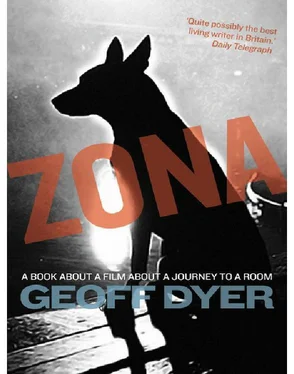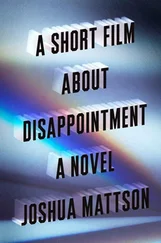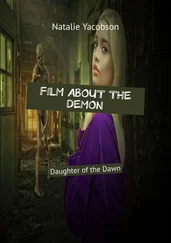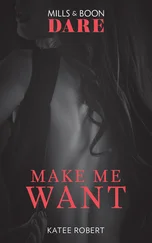SHE EXPANDS ON THIS NOTION of time — she’s lost her best years, has grown old — while the man is brushing his teeth. As she does so you’re reminded again of Antonioni because the plain truth is, she’s no Monica Vitti. Frankly, the combination of nagging and permanently faded looks seems like a compelling incentive to leave. She lays a whole guilt trip on him, but the usual terms — you only think of yourself — are reversed, given a kind of Dostoyevskian twist: Even if you don’t think of yourself… 3
She begs him to stay but, as she does so, you can see that she knows it’s in vain, that he’s going — even though he’s not actually said where he’s going. She says he’ll end up in prison. He says that everywhere’s a prison. Good answer. But a bad sign, marriage-wise. It would seem that their relationship has reached the point where the default mode of communication is to bicker, quarrel and contradict each other. It’s not a lot of fun, this mode, but it’s easy to get the hang of and immensely difficult to get out of once you’re in it: a prison, in fact. One assumes the man’s answer is intended metaphorically but the film often makes us wonder about when and where it is set, and what its relationship is to the world beyond the screen. Stalker was made in the late 1970s, not the 1930s or the 1950s when the Soviet Union was a vast prison camp, when, in prison-camp slang (as Anne Applebaum points out in Gulag), ‘the world outside the barbed wire was not referred to as “freedom”, but as the bolshaya zona, the “big prison zone”, larger and less deadly than the “small zone” of the camp, but no more human — and certainly no more humane.’ By the time of Stalker, communism had become, in Tony Judt’s words, ‘a way of life to be endured’ (which sounds, incidentally, like an alternative translation of Koyaanisqatsi, the Hopi Indian word meaning — as anyone who has ever enjoyed a couple of bong hits already knows—‘way of life needing change’ or ‘life out of balance’). Stalker is not a film about the Gulag, but the absent and unmentioned Gulag is constantly suggested, either by Stalker’s zek haircut, or by the overlapping vocabulary. As we will discover, the most perilous part of the Zone (zona) is the so-called ‘meat grinder’, another prisoners’ term for the procedures of ‘the Soviet repressive system itself.’ 4
After Stalker leaves, his wife has one of those sexualized fits (nipples prominently erect) of which Tarkovsky seems to have been fond, writhing away on the hard floor in a climax of abandonment. 5
He, on the other hand, like many men before and since, is on his way to the pub, making his way through railway sidings, beautifully desolate and puddly, in the postindustrial fog. 6
As the man makes his way across the tracks, a voiceover says everything’s ‘hopelessly boring’—a remark that makes one wonder how quickly a film can become boring. Which film holds the record in that particular regard? And wouldn’t that film automatically qualify as exciting and fast-moving if it had been able to enfold the viewer so rapidly in the itchy blanket of tedium? (Or perhaps one of the novelties of our era is the possibility of instant boredom — like instant coffee — as opposed to a feeling that has to unfold gradually, suffocatingly, over time.) The overheard voice generates some very basic confusion: whose words are they? Presumably they are the vocalized thoughts of the person — Stalker — on-screen, tramping across the railroad tracks in the foggy fog, hands in pockets, looking pretty down in the mouth.
Especially when he sees — and it is revealed — that the person doing the talking, having the overheard thoughts, is another man, with a woman in a cute little fur cape. Uh-oh! The talker is still going on about how insufferably boring everything is. She asks him about the Bermuda Triangle. He goes on some more about how boring everything is, reckons that maybe even the Zone is boring, that it might have been more interesting to have lived in the Middle Ages. What does he mean by this? Is he saying, effectively, that he’d rather have been in Andrei Rublev than Stalker? Which wouldn’t make sense, because he’s Tarkovsky’s favourite actor, Anatoli Solonitsyn — and thirteen years earlier he was Andrei Rublev in Andrei Rublev ! She, on the other hand, looks like a refugee from the Antonioni set. Not only is she wearing the fur number and a long dress, they’re standing by a convertible — with the soft roof up — and she’s drinking out of a long clear glass, as if they’ve just emerged from the place where an orgy seems in the offing but never quite happens in Red Desert. They are at a port of some kind (ditto Red Desert). There’s a ship in the background, and rigging, derricks.
It is obvious, from the moment he enters the frame, that Stalker takes a dim view of this pair, even though the man says that the woman — whose name he can’t recall— has agreed to come to the Zone too, though, frankly, she does not seem to be dressed for any kind of expedition. She’s excited to meet an actual Stalker — evidently there’s quite an aura attached to this shadowy outlaw caste — but he has just one word for her: Go. It’s a man’s world, the Zone. She gets in the car and, pausing only to call Solonitsyn a cretin (or maybe she’s telling him that Stalker is a cretin), drives off — with his hat on the roof. It’s the first of several humorous moments in the film. 7
Stalker was not happy about the way this man brought along a woman and he’s not happy about the way that the man has been drinking. Yes, okay, I’ve been drinking, the man admits, but I’m not drunk. Half the population has a drink, the other half is drunk, he says. Is this an accurate reflection of drinking habits in the USSR? Was it one of the things Tarkovsky came to miss about the slimy pond of his homeland? 8A couple of times in his diaries, Tarkovsky talks about getting drunk and ‘go[ing] on the booze’, but Stalker takes a dim view of drinking. At this stage, in fact, apart from the Zone, there’s nothing of which he does not take a dim view. The man takes a swig from a bottle; in the other hand he clutches a plastic bag, like a teenager with his stash of glue.
STALKER WALKS UP the steps into a bar, the bar we saw earlier. Relatively speaking, customers are pouring in. Happy Hour in a place that looks like people need it. The windows, like the barman’s jacket, could do with a good clean. They afford only the dimmest view of the world outside. Stalker is followed by the man, who treats us to another bit of slapstick slipping convincingly on the steps. It’s not just customers — the gags are coming thick and fast now, it’s practically Buster Keaton round here, Buster Keaton in his long-lost, social-realist classic Happy Hour.
THE TALL MAN, the man we saw in the precredit sequence, is still there, drinking coffee, and the barman is still smoking. Not for the last time we are back where we started. We don’t need a sign to tell us this is the Last Chance Saloon. Chance of getting a decent cappuccino? Zero. Hundred-percent-proof vodka? Now you’re talking. Stalker tells the tall fellow, Go ahead, have a drink— but when the other guy produces his bottle (he’s brought it with him into the bar, coals-to-Newcastle style) Stalker tells him to take it away. Okay, says the man, in the timehonoured sophistry of the alcoholic, we’ll drink beer instead. The barman pours him a beer. Stalker glances at his watch, the watch he’s stolen from his wife, a gesture of impatience and anxiety that the audience may or may not share. All the time the barman is pouring his drink the man is holding the glass, eager to get on the outside of what’s inside it. The moment the barman has stopped pouring he downs it in one — attaboy! — and by the time the barman has finished filling two other glasses, he’s ready for a refill. At the heart of the Zone is the Room, a place where — we will learn later — your deepest wish will come true, but one gets the impression that this room is his Room, that his deepest wish is being catered for right here, chain-swilling beer. 9He brings the refill and two other glasses over to Stalker and the tall man. He’s about to introduce himself, but Stalker (played by Aleksandr Kaidanovsky) tells him his name is Writer and the tall guy’s name is Professor (Nikolai Grinko). Ah, hints of the heist here: Mr. Pink, Mr. White and all that: generic code names in the style of Reservoir Dogs. Has Stalker been lured back into the Zone for one last job?
Читать дальше












